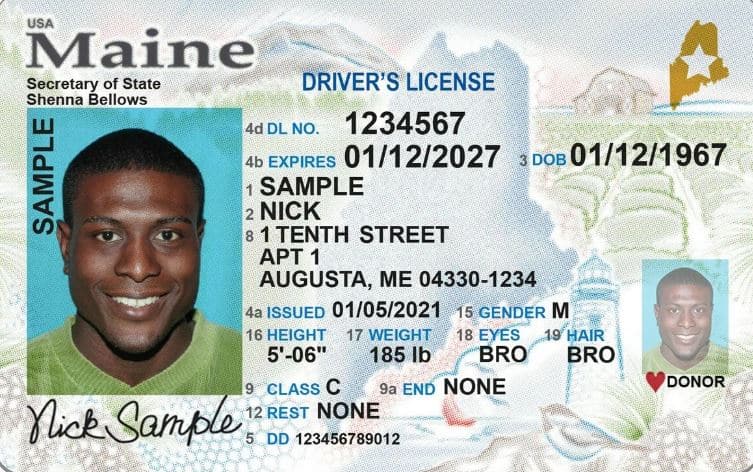Overview of Maine ID scanning laws
Maine has 4 laws which we consider relevant to ID verification, in addition to strict laws around facial recognition and biometric privacy. The former Secretary of State, Matt Dunlap went on the record to speak at length regarding Maine’s ethos around ID scanning and PII.
Can you scan an ID in Maine?
Yes. Maine law does not regulate a business’s practice of scanning IDs.
May 17, 2019: When asked if businesses need permission to scan our IDs.
“That’s a policy question for the business,” said Matt Dunlap, Secretary of State.
In Maine, businesses can scan an ID. By law though, businesses cannot save the data to build a customer database.
“The law explicitly forbids copying a license which is essentially what that would be,” explained Dunlap. “This is something that the legislature struggled with a little bit because people make copies of licenses to close a mortgage, rent a car, etc. and they’ve been doing some work on that but the basic premise of the statute is to protect the privacy of the driver.”
There are some instances in which merchants are required to record information related to identity, such as sale scrap metal. ID scanning can improve the ease and accuracy of record keeping in these scenarios.
Is facial recognition legal in Maine?
As of October 1, 2021, there is a statewide ban on public and government use (including law enforcement) of facial recognition technology in Maine. The law does not regulate use of facial recognition technology by private businesses.
Does Maine offer affirmative defense for ID scanning?
No. There may be limited access to affirmative defense for tobacco sales.
What types of IDs does Maine issue?
Maine issues drivers licenses and state IDs, including REAL ID, and CDLs. Maine does not issue non-domiciled CDLs.
Individual Maine ID verification laws
Age verification for alcohol sales
Maine does not require ID scanning for alcohol sales but has strong penalties for sales to a minor.
Age verification for tobacco sales
Maine provides an affirmative defense to the retailer if the minor used a fake ID to purchase tobacco products.
ID verification for scrap metal sales
Maine requires that scrap metal dealers record information from the drivers license of the seller.
Age verification for social media
Maine has proposed a bill that would require social media sites to verify age of users. Proposed 3/4/2025
Facial recognition in Maine
Maine has a statewide ban on the use of facial recognition by law enforcement or public officials. Enacted 2022.



